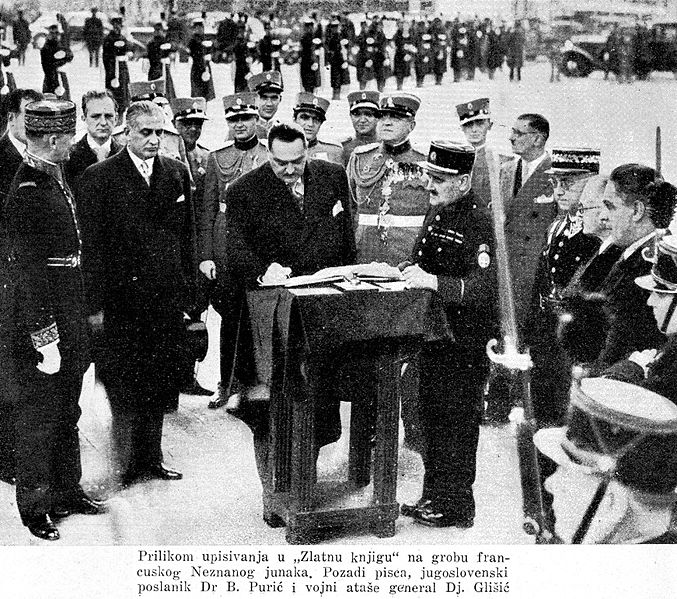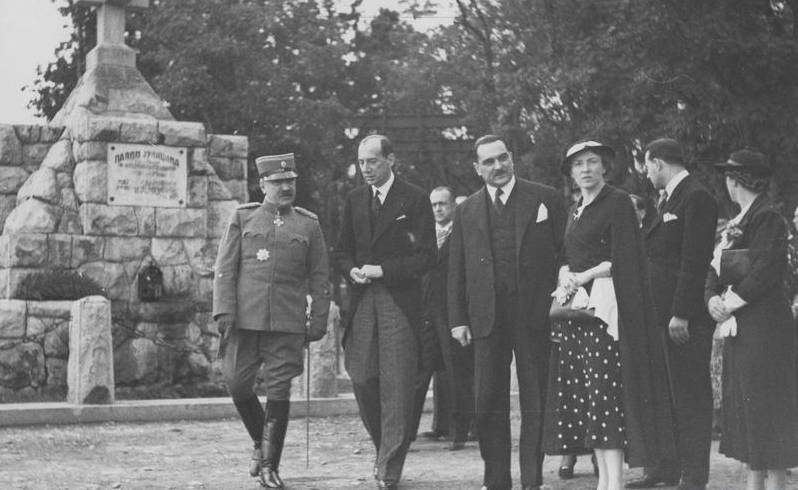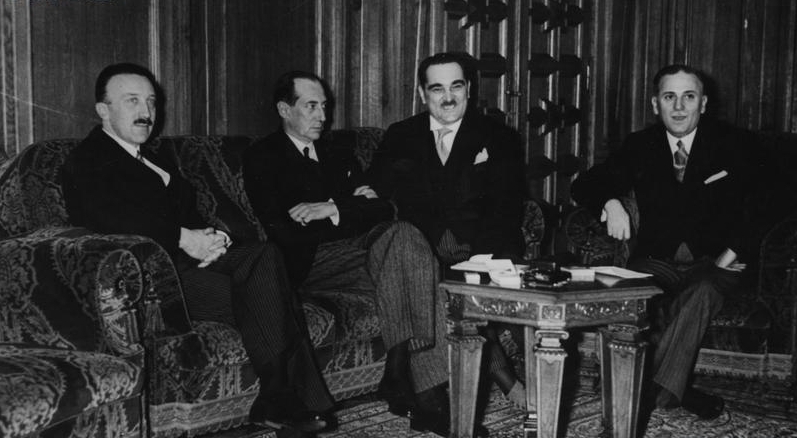<Back to Index>
- Mineralogist Johann Gottlieb Lehmann, 1719
- Landscape Architect Roberto Burle Marx, 1909
- Prime Minister of Yugoslavia Milan Stojadinović, 1888
PAGE SPONSOR
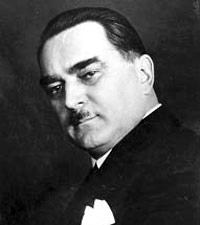
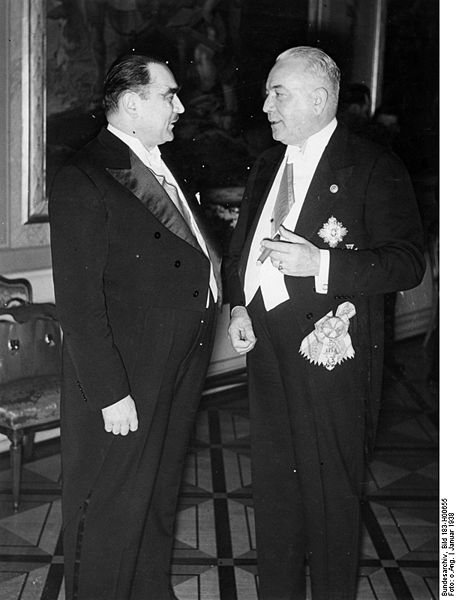
Milan Stojadinović (Милан Стојадиновић) (August 04, 1888 – October 26, 1961) was a Yugoslav political figure and a noted economist.
Stojadinović was born in Čačak in central Serbia, and went to school in Užice and Kragujevac. In 1910 he graduated from the University of Belgrade's Law School, and gained a Ph.D. in economics in 1911. He subsequently spent three years of post - graduate studies in Germany, Britain and France before he returned to Serbia in 1914 to work at the Ministry of Finance.
He would rise to the position of Minister of Finance of the Kingdom of Yugoslavia in 1922 – 1924, 1924 – 1926, 1934 – 1935. As a member of the People's Radical Party, he was also elected to the Parliament in 1923, 1925, 1927. In 1935 he founded a new party, the Serbian Radical Party, which with some other parties formed the coalition Jugoslovenska Radikalna Zajednica (Yugoslav Radical Union, JRZ) and won the elections. On June 24, 1935, he was elected Prime Minister and Minister of Foreign Affairs. He was the victim of a failed
assassination attempt by the Macedonian Damjan Arnautović in 1935. Stojadinović recognized the military threats from National Socialist Germany, Fascist Italy
and surrounding countries as imminent. He viewed the Kingdom of
Yugoslavia's future only as sustainable if a neutral status akin to that
of Switzerland could be established. His foreign policies pushed consistently towards this goal. Examples are the non-aggression treaty with Italy and Yugoslavia's extension of its treaty of friendship with France. Also, the attempted Concordat with the Holy See, which however, caused severe protests from the Serb Orthodox Church in 1937, and was thus never ratified. In late 1938 he was re-elected, albeit with a smaller margin than expected, failed in pacifying the Croats,
raised a military like legion of his own followers ('Green Shirts'),
and did not formulate any clear political programme, providing the
regent Paul with a welcomed pretext upon which to replace Stojadinović on February 5, 1939, with Dragiša Cvetković. Following
his replacement, the Prince Regent went further by detaining
Stojadinović without proper cause until he had managed, with the help of
his strong personal ties to King George VI of the United Kingdom (who
had been the Prince Regent's best man in 1923) to enlist the support of
the United Kingdom to have Stojadinović sent into exile to British controlled Mauritius, where he was kept during World War II. In 1946 Stojadinović went to Rio de Janeiro, and then to Buenos Aires,
where he was reunited with his family. Stojadinović spent the rest of
his life as presidential advisor on economic and financial affairs to
governments in Argentina and founded the financial newspaper El Economista (not to be associated with the Mexican newspaper of the same name). In 1963, two years after his death, "El Economista" published a commemorative edition entitled "NI RAT NI PAKT - JUGOSLAVIJA IZMEDJU DVA RATA", Milan Stojandinović's extensive Memoirs written in his native tongue.
